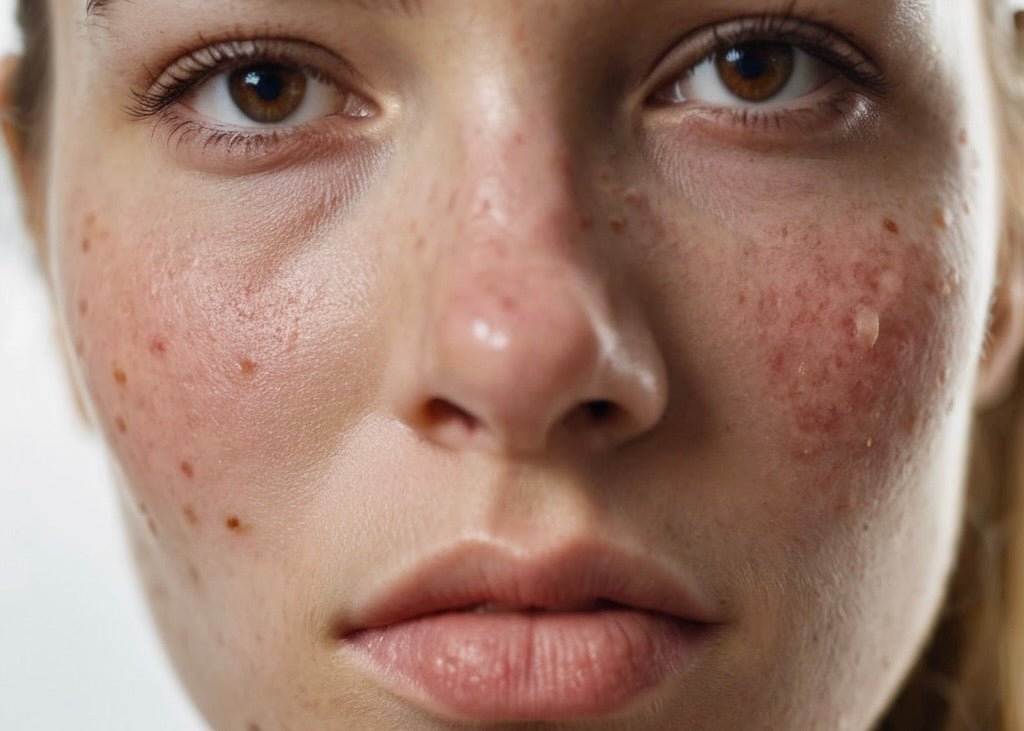
How to Shop for the Best Face Mask for Acne
Acne is a common skin condition that affects people of all ages. It can be frustrating and challenging to manage, but the good news is that there are many effective treatments available. One such treatment is the use of face masks specifically designed to combat acne. But with so many options on the market, how do you choose the best one? This guide will help you understand what to look for when shopping for an acne face mask.
Understanding Acne and Its Causes
Before we delve into how to choose the best face mask for acne, it's important to understand what acne is and what causes it. Acne is a skin condition that occurs when your hair follicles become plugged with oil and dead skin cells. This can result in a variety of blemishes, including whiteheads, blackheads, and pimples.
Acne is most common among teenagers, but it can affect people of all ages. Several factors can contribute to acne, including hormonal changes, certain medications, diet, stress, and a lack of sleep. Understanding the cause of your acne can help you choose the most effective treatment.
What to Look for in a Face Mask for Acne
When shopping for a face mask for acne, there are several key factors to consider. These include the ingredients, the type of acne it's designed to treat, and the sustainability of the product.
Ingredients
One of the most important things to consider when choosing a face mask for acne is the ingredients. Some ingredients are more effective at treating acne than others. Here are a few ingredients to look for:
- Salicylic Acid: This is a beta hydroxy acid that helps to exfoliate the skin and unclog pores.
- Benzoyl Peroxide: This ingredient kills the bacteria that cause acne.
- Sulfur: Sulfur helps to remove excess oil from the skin and reduce inflammation.
- Tea Tree Oil: This natural ingredient has anti-inflammatory and antimicrobial properties that can help reduce acne.
While these ingredients can be effective, it's also important to consider the benefits of using natural and sustainable skin care ingredients. Natural ingredients are often gentler on the skin, and sustainable ingredients are better for the environment. Some natural and sustainable ingredients that can help treat acne include aloe vera, green tea, and honey.
Type of Acne
Another factor to consider when choosing a face mask for acne is the type of acne you have. Different types of acne require different treatments, so it's important to choose a mask that's designed to treat your specific type of acne. For example, if you have blackheads, you might want to choose a mask with salicylic acid, which can help unclog pores. If you have inflamed pimples, a mask with benzoyl peroxide might be more effective.
Sustainability
Finally, consider the sustainability of the product. Many skin care products are packaged in single-use plastic, which is harmful to the environment. Look for products that use recyclable packaging, or better yet, products that are package-free. Additionally, consider the sustainability of the ingredients. Are they sourced in an environmentally-friendly way? Are they free from harmful chemicals? Choosing a sustainable product is not only good for your skin, but also for the planet.
How to Use a Face Mask for Acne
Once you've chosen a face mask for acne, it's important to use it correctly to get the best results. Here's a step-by-step guide on how to use a face mask for acne:
- Cleanse Your Skin: Before applying the mask, cleanse your skin to remove any dirt, oil, or makeup. This will help the mask to penetrate more deeply into your skin.
- Apply the Mask: Apply the mask evenly over your face, avoiding the eye area. Be sure to follow the instructions on the packaging, as some masks need to be applied to dry skin, while others should be applied to damp skin.
- Wait: Leave the mask on for the recommended amount of time. This is usually between 10 and 20 minutes, but can vary depending on the product.
- Rinse: Rinse off the mask with warm water, then pat your skin dry with a clean towel.
- Moisturize: After rinsing off the mask, apply a moisturizer to your skin. This will help to keep your skin hydrated and prevent it from producing excess oil.
Remember, consistency is key when it comes to treating acne. Use your face mask regularly, as directed, to see the best results.
Conclusion
Acne can be a frustrating condition to deal with, but the right face mask can make a big difference. When shopping for a face mask for acne, consider the ingredients, the type of acne it's designed to treat, and the sustainability of the product. With a little research and patience, you can find the perfect face mask to help clear your skin and boost your confidence.













